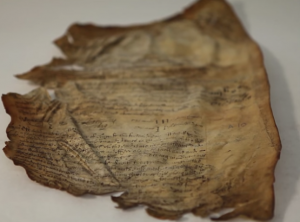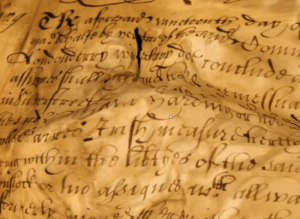In the DH sample books website, the DH projects are categorized by the major DH approaches that used by the projects. There are seven categories, including archive, visualization, mapping, digital edition, network analysis, textual analysis, and audio analysis. A student or a researcher can easily find a DH project that is appealing to him/her by looking especially at the approach that meets his/her interest. For example, I find the idea of examining history through audio analysis very interesting since I have only learned about history through texts and pictures before, and audio analysis seems very novel to me. The categories help me find my favorite DH project easily.
Nowadays, not only texts, pictures and voices can be digitized and uploaded to internet to a broader range of readers, so as the valuable archives. The biggest advantage of creating a digital artifact from archival documents is that it makes the publicizing of archives possible. In the past, researchers would have to travel long distances to certain museums for viewing these unique archives. Now that these archives are accessible on internet, researchers save lots of their commuting time and can spend more time on the work itself. The publicizing of the precious archives also benefits non-professionals like students. We students are sometimes not allowed to view the original archives since they are strictly reserved for professionals. However, with the digital archives, we students can have a general concept of what archives is, whereby determine if the course, or even the major, of humanities suits us. And most importantly, a great number of archives are too fragile to be legible when they are in two-dimension, which is how the archives are presented in museums. With digital tools, we are now able to view them in three-dimension, which can uncover the text hidden in the creases and greatly improve the legibility of the archives.1


Admittedly, there are also some disadvantages of making archives digital. It might encourage people to work exclusively with computers, instead of working with people, while humanities, the studies of human culture, require communications with people, not computers. Moreover, the accessibility of archives might devalue these treasures. People tend to believe that scarcity means value, and thus fail to see the value of archives.
There are many challenges awaiting when I build my own DH project. For example, I should design my website in a clear and reader-friendly way. Making categories is one useful way to navigate this challenge. Also, I might struggle for collecting enough materials from different DH approaches to support my points. It would be perfect if I can demonstrate my views by presenting relative archives, mappings, pictures, charts and audios to readers.
1. cite from http://www.greatparchmentbook.org/